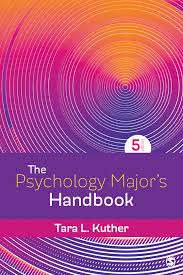Embarking on Your Psychology Journey
Psychology opens fascinating doorways into psychology major’s handbook pdf understanding human behavior, mental processes, and the complexities of the human mind. Students who choose psychology as their major embark on an exciting journey of scientific discovery. The field combines rigorous scientific methodology with profound insights into human nature and behavioral patterns. Furthermore, psychology majors develop valuable skills in research, critical thinking, and human understanding throughout their academic journey.
Understanding the Core Curriculum
Psychology programs typically begin with foundational courses that introduce students to basic psychological concepts and research methodologies. Students must master statistical analysis techniques to understand research data and conduct their own psychological studies. The curriculum progresses through various specializations, including cognitive psychology, developmental psychology, and social psychology over time. Additionally, advanced courses explore clinical psychology, neuropsychology, and other specialized areas within the broader field of study.
Research Methods and Statistical Analysis
Successful psychology students develop strong research skills through practical experience in experimental design and data collection. Statistical analysis forms the backbone of psychological research, requiring students to master both basic and advanced analytical. Furthermore, psychology majors learn to use various statistical software programs to analyze and interpret research data. Students conduct their own research projects, applying theoretical knowledge to real-world psychological questions and hypotheses.
Laboratory Experience and Practical Skills
Psychology programs incorporate hands-on laboratory experiences that allow students to apply theoretical concepts to practical situations. Students learn to use various psychological assessment tools and measurement techniques in controlled laboratory environments. The laboratory setting provides opportunities to practice experimental procedures and develop technical skills in psychology. Moreover, practical experience helps students understand the challenges and ethical considerations in psychological research.
Writing in Psychology
Professional psychological writing follows specific guidelines outlined in the American Psychological Association (APA) style and format. Students must master the art of writing research papers, literature reviews, and experimental reports in psychology. Furthermore, clear communication skills help psychology majors share their findings with both academic and general audiences. The ability to write effectively becomes increasingly important as students progress through their academic careers.
Ethics and Professional Standards
Psychology professionals must maintain high ethical standards when working with human subjects and handling sensitive information. Students learn about confidentiality, informed consent, and the protection of research participants’ rights and welfare. The American Psychological Association provides comprehensive ethical guidelines that shape professional practice in the field. Moreover, understanding ethical considerations helps students develop responsible research practices and professional behavior standards.
Career Pathways and Opportunities
Psychology graduates pursue diverse career paths in mental health, education, research, and organizational settings. Many students continue their education through graduate programs in clinical psychology, counseling, or specialized research areas. The field offers opportunities in private practice, academic research, organizational consulting, and various therapeutic settings. Furthermore, psychology skills prove valuable in human resources, marketing, and other business-related career paths.
Building Professional Networks
Psychology majors benefit from joining professional organizations and attending conferences in their areas of interest. Networking opportunities help students connect with established professionals and learn about current developments in psychology. Furthermore, professional memberships provide access to valuable resources, journals, and career development opportunities. Students should actively participate in psychology clubs and academic organizations on campus.
Research Experience and Internships
Practical experience through research assistantships and internships enhances students’ understanding of psychological principles in real-world settings. Many psychology programs encourage students to participate in faculty research projects or conduct independent research studies. Internships provide valuable exposure to various professional settings where psychologists work with diverse populations. Additionally, these experiences help students determine their specific interests within the broader field.
Graduate School Preparation
Many psychology careers require advanced degrees, making graduate school preparation an important consideration for undergraduate students. Students should maintain strong academic records and develop relationships with faculty members who can provide recommendations. The Graduate Record Examination (GRE) plays a crucial role in graduate school admissions for psychology programs. Moreover, research experience and internships strengthen graduate school applications and career prospects.
Technology in Psychology
Modern psychology increasingly incorporates technological tools for research, assessment, and therapeutic interventions in clinical settings. Students must develop proficiency with various software programs used in psychological research and practice. Furthermore, online therapy platforms and digital assessment tools create new opportunities in psychological service delivery. Understanding technology’s role helps students prepare for evolving professional demands in psychology.
Self-Care and Professional Development
Psychology students must practice self-care while studying emotional and behavioral challenges in their academic and clinical work. Professional development includes understanding personal limitations and maintaining appropriate boundaries in therapeutic relationships and research settings. Furthermore, students learn to balance academic demands with personal well-being throughout their educational journey. Regular supervision and mentorship help students navigate professional challenges and personal growth opportunities.
Conclusion:
The psychology major offers exciting opportunities for personal growth, academic achievement, and professional development in various settings. Students develop valuable skills in research, analysis, and human understanding that benefit many career paths. Furthermore, psychology education provides insights into human behavior that enhance personal and professional relationships. The field continues to evolve, offering new opportunities for graduates to make meaningful contributions.
Psychology departments typically provide various resources to support student success throughout their academic programs. Academic advisors help students plan their coursework and prepare for graduate school or career opportunities. Furthermore, writing centers and statistics tutoring services assist students with challenging aspects of their coursework. Students should actively utilize available resources to maximize their educational experience and professional preparation.
